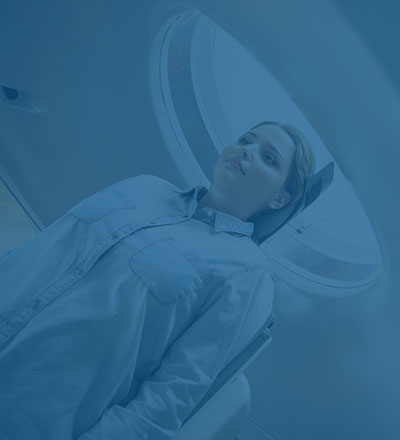Choosing the Right Diagnostic Test: How Your Doctor Decides Between an MRI and a CT Scan
At Advanced Magnetic Imaging and Advanced Open MRI, choosing the right diagnostic test, whether an MRI or CT scan, depends on your symptoms and medical history. An MRI is typically preferred for soft tissue evaluation, such as muscles, ligaments, and the brain, while a CT scan is often used for bone injuries and detecting internal bleeding. Our doctors will assess your condition to recommend the most suitable test for accurate diagnosis and treatment planning. For more information, contact us today or schedule an appointment online. We have convenient locations to serve you in West New York, NJ and West Hudson, NJ.


Table of Contents:
What is the core difference in technology between an MRI and a CT scan?
How do the images produced by an MRI and a CT scan differ?
Does the cost of the scan and insurance coverage play a role in the decision?
Can a doctor use a CT scan to get initial information and then order a more detailed MRI?
At Advanced Imaging, we offer state-of-the-art diagnostic services, including both MRI (Magnetic Resonance Imaging) and CT (Computed Tomography) scans, to help patients and referring physicians obtain the most accurate and detailed insights into their health.
MRI scans at our facility utilize powerful magnetic fields and radiofrequency waves to generate high resolution images, making them particularly valuable for examining soft tissues such as the brain, spine, joints, and muscles. Our advanced MRI technology is designed for patient comfort and delivers precise results without exposure to ionizing radiation, making it a preferred choice for neurological, musculoskeletal, and certain abdominal and pelvic conditions.
CT scans at Advanced Imaging employ sophisticated X-ray technology to capture multiple cross sectional images from different angles, which are then reconstructed by a computer to create detailed pictures of areas like the chest, abdomen, and bones. CT imaging is especially effective for detecting fractures, internal injuries, and abnormalities in the lungs or abdominal organs. While CT scans do involve minimal exposure to radiation, they provide rapid and highly accurate results, which are crucial in emergency situations and for specific diagnostic needs.
Our experienced radiologists work closely with referring physicians to recommend the most appropriate imaging technique based on each patient’s unique situation. While both MRI and CT scans are invaluable diagnostic tools, the choice depends on the condition being evaluated, the area of the body involved, and considerations such as the need to avoid radiation exposure.
We specialize in providing state-of-the-art diagnostic imaging services, including both MRI (Magnetic Resonance Imaging) and CT (Computed Tomography) scans. Understanding the differences between these two advanced technologies can help our patients and referring providers make informed decisions about their care.
MRI uses powerful magnets and radio waves—without any radiation exposure—to create highly detailed images of the body’s internal structures. At our facility, MRI is particularly effective for imaging soft tissues, making it a preferred tool for evaluating the brain, spinal cord, joints, muscles, ligaments, and organs such as the liver and uterus. Our advanced MRI technology produces images with exceptional clarity and contrast between different soft tissues, allowing our radiologists to detect subtle abnormalities that may not be visible with other imaging methods.
CT scans, on the other hand, use X-ray technology to create cross-sectional images of the body. CT imaging is especially valuable for visualizing bone detail, blood vessels, and for quickly assessing trauma, fractures, or internal injuries. At Advanced Imaging, our high-resolution CT scanners provide rapid and precise images, which are crucial in emergency situations, for diagnosing lung and chest conditions, and for evaluating complex fractures or vascular diseases.
At Advanced Imaging of NJ, we understand that the cost of diagnostic scans—and the extent of your insurance coverage—can play a significant role in your healthcare decisions. Advanced imaging tests such as MRI, CT, PET, and Ultrasound scans can be costly, and insurance plans may vary in what they cover and how much they contribute toward your bill.
Our knowledgeable staff is here to help you navigate these concerns. Before scheduling your scan, we work with you and your referring physician to verify your insurance benefits and gain any necessary pre-authorizations. This helps ensure you are informed about what your insurance will cover and what your potential out-of-pocket expenses, copayments, or deductibles might be.
If you have questions about your specific coverage, our team can provide guidance and help you understand your options. In situations where a scan is medically necessary but not fully covered by insurance, we can discuss alternative diagnostic options, payment plans, or financial assistance programs.
Our board-certified radiologists use the latest medical imaging technology to provide fast, accurate diagnoses for our patients. In many situations, your doctor may start with a CT scan (computed tomography) to quickly gather essential information about your condition. CT scans are especially useful in emergencies—such as suspected strokes, head injuries, or acute abdominal pain—because they are fast, widely available, and highly effective for detecting issues like bleeding, fractures, or major abnormalities in organs and tissues.
However, CT scans have certain limitations, particularly when it comes to visualizing soft tissues, nerves, and some types of tumors. That’s why, if your doctor needs more detailed images to clarify a diagnosis, assess the extent of disease, or help plan treatment, they may recommend an MRI (magnetic resonance imaging). MRIs provide exceptional detail for areas like the brain, spinal cord, muscles, joints, and some internal organs.
At Advanced Imaging of New Jersey, we offer both state-of-the-art CT and MRI services in a comfortable, patient friendly environment. Our team works closely with your referring physician to ensure you receive the most appropriate imaging for your specific medical needs. This step-by-step approach—starting with a CT scan and moving to an MRI if needed—allows us to balance the need for a rapid assessment with the advantages of high detail imaging, ensuring you receive the best possible care. For more information, contact us today or schedule an appointment online We serve patients from West New York NJ, North Bergen NJ, Union City NJ, Guttenberg NJ, Weehawken NJ, Hoboken NJ, Fort Lee NJ, Englewood NJ, East Rutherford NJ, Jersey City NJ, West Hudson NJ, Newark NJ, Nutley NJ, Secaucus NJ, Belleville NJ, Hoboken NJ, Bloomfield NJ, and the surrounding areas!

ADDITIONAL SERVICES YOU MAY NEED




